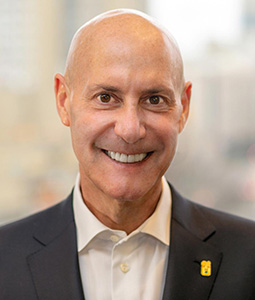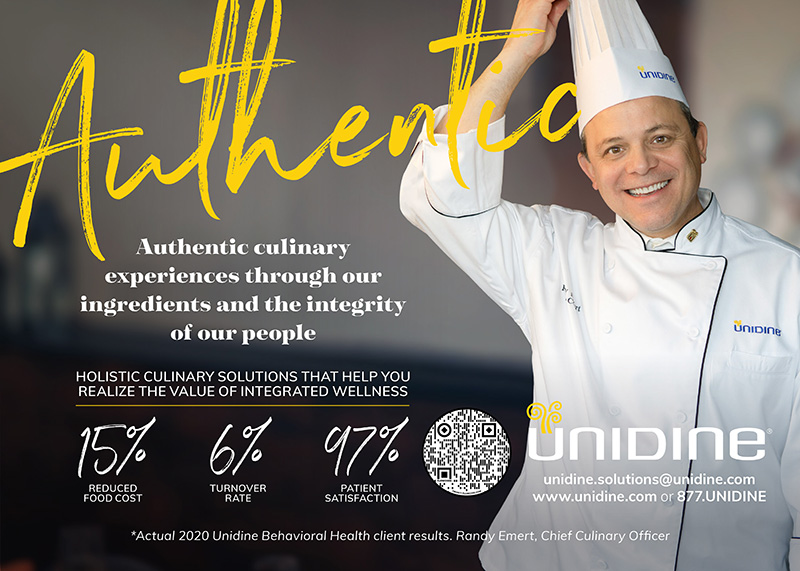Outsourcing is the strategic use of outside experts to perform activities traditionally handled internally. It is a strategy which employs the contracting of specialized service providers having expertise in targeted areas. This expertise can deliver measurable value to your business.

Richard B. Schenkel
Why outsource?
To improve quality of service to your customers; improve employee productivity and engagement; control costs; gain access to additional resources, increased capital and specialized capabilities; free internal resources for other purposes; increase efficiency; and share or shift risk.
How can you ensure a successful outsourcing relationship?
Successful outsourcing relationships are the result of collaboration. Too often, outsourcing initiatives fail because they are the result of “bids” and “RFPs,” neither of which fully convey the culture, needs, expectations, nuances, and key drivers that warrant interest in outsourcing. Food service, in particular, is a very personal business and requires a thorough understanding of the role it plays.
How can you determine the right fit for your organization?
Explain your business goals and objectives, and the expectation for food service against them; Share your strategic vision for food and dining services, and nutrition, health and wellness; Select a vendor that demonstrates an understanding of your culture and the capabilities that are required to bring your vision to life; Maintain open communication between your vendor partner and all stakeholders; Create a channel of communication between senior leadership; Justify financial expectations by asking how they will be achieved with mitigated risk; Manage the relationship; Communicate relationship throughout all organizational departments; Be informative with your vendor partner; Be specific; Keep your vendor partner current on business needs, especially as they change or evolve; and Structure the vendor agreement so there is a mutually clear understanding of obligations and commitments; memorialize service levels.
How does Unidine recruit and retain talent?
Recruitment: There are multiple layers to this process. Unidine always looks internally first to determine which managerial candidates are best suited for consideration. The candidate pool is then expanded to include individuals outside of Unidine who have responded to postings and portray demonstrated success and achievement. Every candidate, both internal and external, is then vetted through the competency validation process to determine how well they match up to the expectations and requirements of the respective client. The client also participates in the selection process to define the management role and the type of manager who they believe would be a good fit for their culture and organization. After a series of internal interviews Unidine narrows the field and presents several qualified candidates to the client for final vetting after which client and Unidine collaborate on the final selection.
Retention: Competitive salaries and benefits play a part in retaining great team members. However, what enables Unidine to develop and retain top managers and teams is its emphasis on the Unidine culture. At Unidine it is all about treating others with respect; helping team members grow and achieve their personal and professional goals; unparalleled customer service and hospitality; responding to customer needs with a sense of urgency and empowering all team members. Unidine is a learning and teaching organization where everyone can learn from each other to deliver the most effective solutions for our clients, guests and team members.
Does Unidine support clinical needs and patient education?
Clinical needs: Unidine provides and budgets for the effective level of onsite dietitian support based on specific client’s needs. Service levels range from menu signoff to inpatient consults and assessments, with ongoing diet and nutrition support for inpatient and outpatient care.
Patient education: Unidine provides educational materials and experiences to patients that promote healthy choices and lifestyles. Healthy cooking classes, how-to-shop seminars and other food-related life skills events are led by executive chefs and registered dietitians. A defined Wellness, program that positively impacts everyone – patients, staff and employees – can be developed.
Healthy menu options: Unidine offers healthy menu options at every meal. There are currently over 600 specific recipes that are the result of an ongoing collaboration of Unidine senior culinarians and dietitians. Each menu item is nutrient-rich, properly portioned and prepared with healthy cooking processes.
Is Unidine’s Fresh Food/Scratch Cooking program more costly than ready-to-serve food products that only require rethermalization and plating?
No. Cost is driven by client menu preferences, patient consumption and overall scope of food service rather than by the cost of goods and labor. Most client facilities are already staffed to transform a ‘can-to-pan’ program to one that requires fresh whole ingredients and scratch cooking. Unidine trains staff to cook with fresh ingredients while following standardized recipes. Additionally, there is a labor cost already baked into the cost of prepared, pre-cooked and convenience foods. Why pay for that when your existing production team utilizes the different parts for the daily menu while bones and trimmings are used to flavor sauces, stocks and gravies. In addition to a better-quality end product, there is nearly 100% product utilization which reduces the cost and minimizes waste. A ‘can-to-pan’ program requires purchasing prepared, frozen products or canned goods that only have a singular purpose: the remaining product sits on the freezer shelf or in the storeroom which comprises quality and contributed to costly inventory.
How will Unidine manage our costs?
Identification: Unidine requests a list of all food service budget categories prior to the formal assessment process. The list will be revisited several times prior to the development and delivery of a proposal. All relevant cost categories will be budgeted against historical data from Unidine facilities and industry standards.
Tracking: Unidine will ensure that budgeted expenses align with client expectations and an established scope of service. Financial performance is routinely monitored so that variances and adjustments are data driven.
Avoidance: This is an ongoing process throughout the term of our engagement to consistently seek future cost reductions. Unidine conducts formalized Quarterly Business Reviews that include forward-thinking initiatives and recommendations to positively impact operational and financial performance.
Technology: Unidine deploys its proprietary management information system, My-U-Suite, to manage all department costs including menu-management, pro- duction, inventory, suppliers and staffing.
Can we use local suppliers?
Many Unidine clients have suppliers that are local favorites. If a local supplier is requested, Unidine Supply Chain will initiate a vetting/approval process to ensure that the supplier complies with quality standards, safe food handling practices, competitive pricing and delivery requirements.
What is the “typical” term of service agreement?
The standard minimum contract term is 3 years.
How do you manage the transition?
Your only get one opportunity to make a first impression. The transition and opening of your facility is Unidine’s first impression, and will last with you for the entire life of our partnership. Because we understand this, it has been and will always be our goal to ensure we have resources on the ground from day one. To ensure your transition runs smoothly, we have adopted a methodology for transitioning new locations that includes accomplishing a number of key tasks: Managing the transition of employees with respect and dignity, ensuring adequate training before and during opening; Implementing the programs and standards that are core to mutual success; Creating a communication process by which expectations are clearly defined feedback is full-circle and proactive measures are taken to address questions and concerns; Ensure rigor around following a proven, standardized process
Throughout each phase of our transition playbook, our team will make every necessary effort to ensure we have the right people, tools and systems to effectively transition your dining program without service interruption. At each step, our team will circle back with you to provide detailed progress reports and understand your feedback. We look forward to a long partnership and great dining program that all starts on day one.
How would you describe the difference between Unidine and other providers in one concise statement?
Unidine’s approach is customer-first-we craft invigorating dining moments for discerning clients and their clientele
About Unidine
Unidine operates in over 400 facilities and is the leading provider of food and dining management services for discerning clients throughout the United States. Since its founding in 2001 by President and CEO Richard B. Schenkel, Unidine’s success derives from consistent execution in four key areas – and exclusive focus on food and dining management services, a commitment to seasonal, fresh-from-scratch cooking, exceptional customer service and a corporate culture enlivened by each team member’s passion for culinary and service excellence. Unidine’s network of dietitians and culinarians leverage the latest research to support cultural enrichment and wellness strategies for hospitals and behavioral health facilities, and also exceptional service for senior living communities and corporations.







